Wu Qiu
A Plug-and-Play Untrained Neural Network for Full Waveform Inversion in Reconstructing Sound Speed Images of Ultrasound Computed Tomography
Jun 14, 2024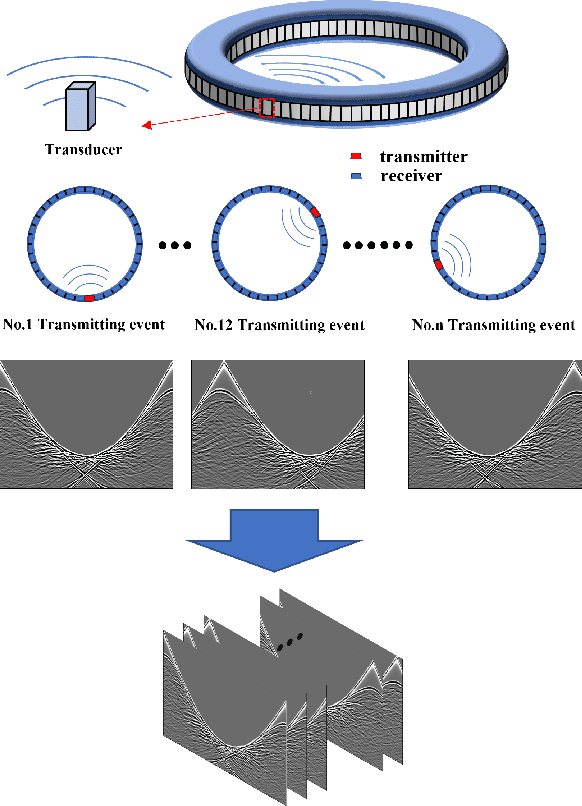
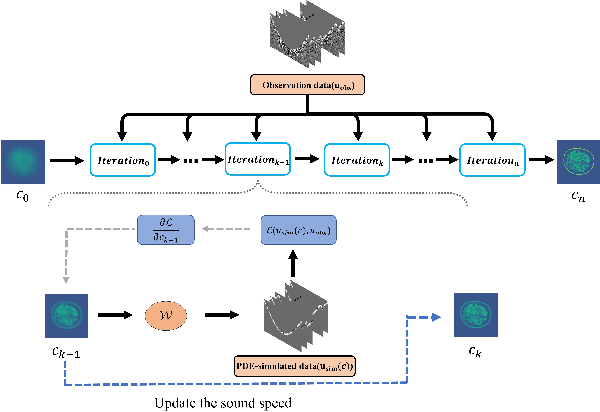
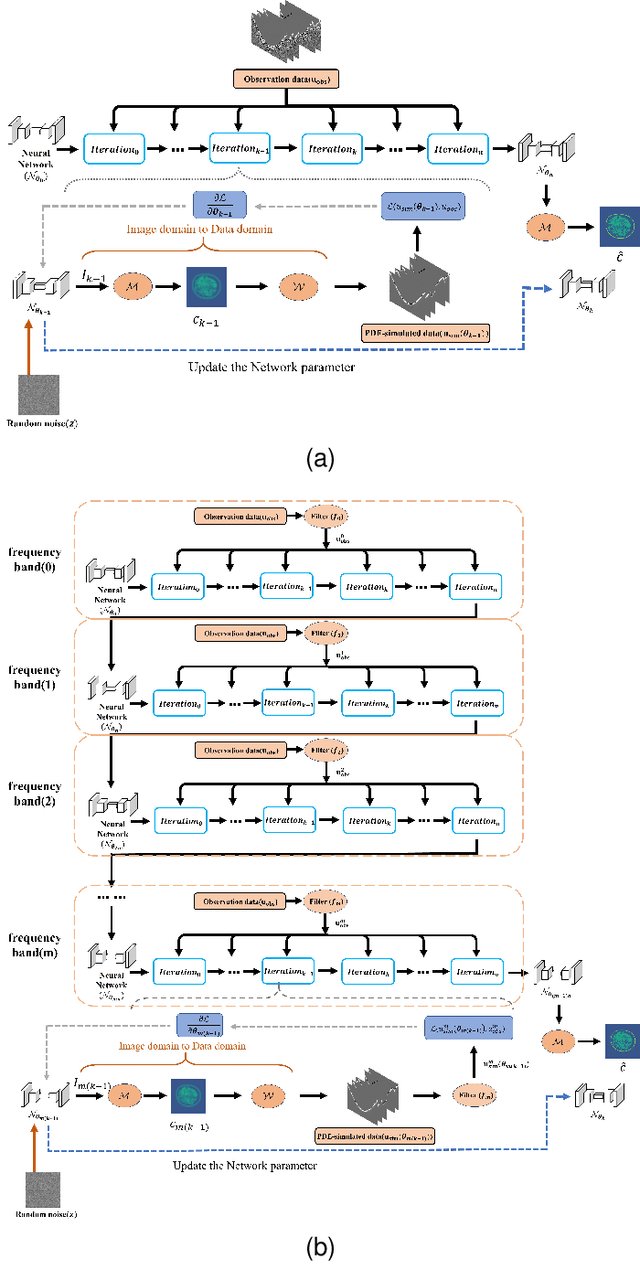
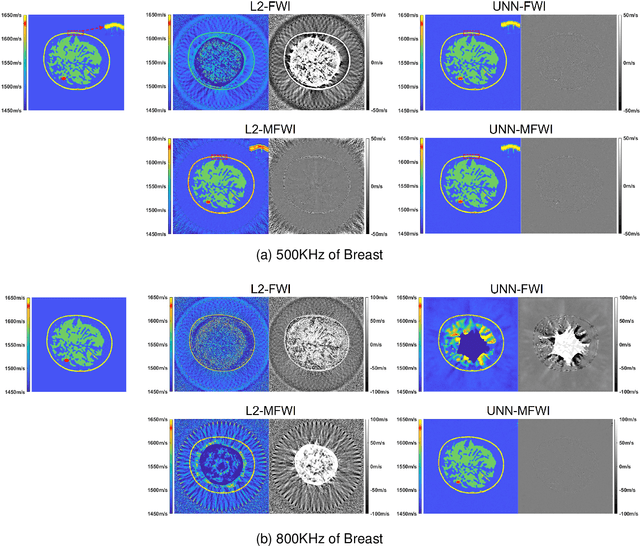
Abstract:Ultrasound computed tomography (USCT), as an emerging technology, can provide multiple quantitative parametric images of human tissue, such as sound speed and attenuation images, distinguishing it from conventional B-mode (reflection) ultrasound imaging. Full waveform inversion (FWI) is acknowledged as a technique with the greatest potential for reconstructing high-resolution sound speed images in USCT. However, traditional FWI for sound speed image reconstruction suffers from high sensitivity to the initial model caused by its strong non-convex nonlinearity, resulting in poor performance when ultrasound signals are at high frequencies. This limitation significantly restricts the application of FWI in the USCT imaging field. In this paper, we propose an untrained neural network (UNN) that can be integrated into the traditional iteration-based FWI framework as an implicit regularization prior. This integration allows for seamless deployment as a plug-and-play module within existing FWI algorithms or their variants. Notably, the proposed UNN method can be trained in an unsupervised fashion, a vital aspect in medical imaging where ground truth data is often unavailable. Evaluations of the numerical simulation and phantom experiment of the breast demonstrate that the proposed UNN improves the robustness of image reconstruction, reduces image artifacts, and achieves great image contrast. To the best of our knowledge, this study represents the first attempt to propose an implicit UNN for FWI in reconstructing sound speed images for USCT.
RANCOR: Non-Linear Image Registration with Total Variation Regularization
Apr 09, 2014
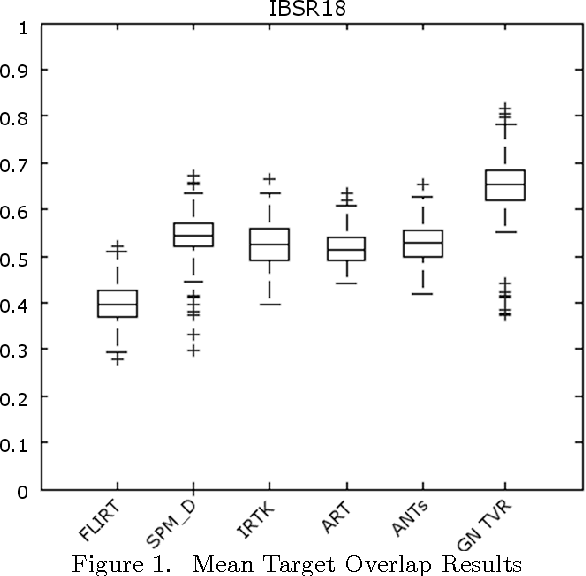
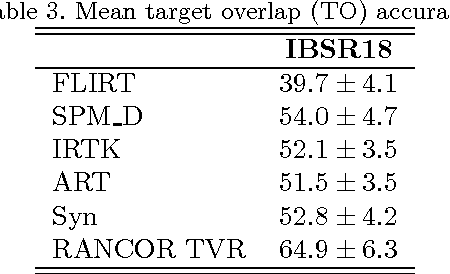
Abstract:Optimization techniques have been widely used in deformable registration, allowing for the incorporation of similarity metrics with regularization mechanisms. These regularization mechanisms are designed to mitigate the effects of trivial solutions to ill-posed registration problems and to otherwise ensure the resulting deformation fields are well-behaved. This paper introduces a novel deformable registration algorithm, RANCOR, which uses iterative convexification to address deformable registration problems under total-variation regularization. Initial comparative results against four state-of-the-art registration algorithms are presented using the Internet Brain Segmentation Repository (IBSR) database.
 Add to Chrome
Add to Chrome Add to Firefox
Add to Firefox Add to Edge
Add to Edge